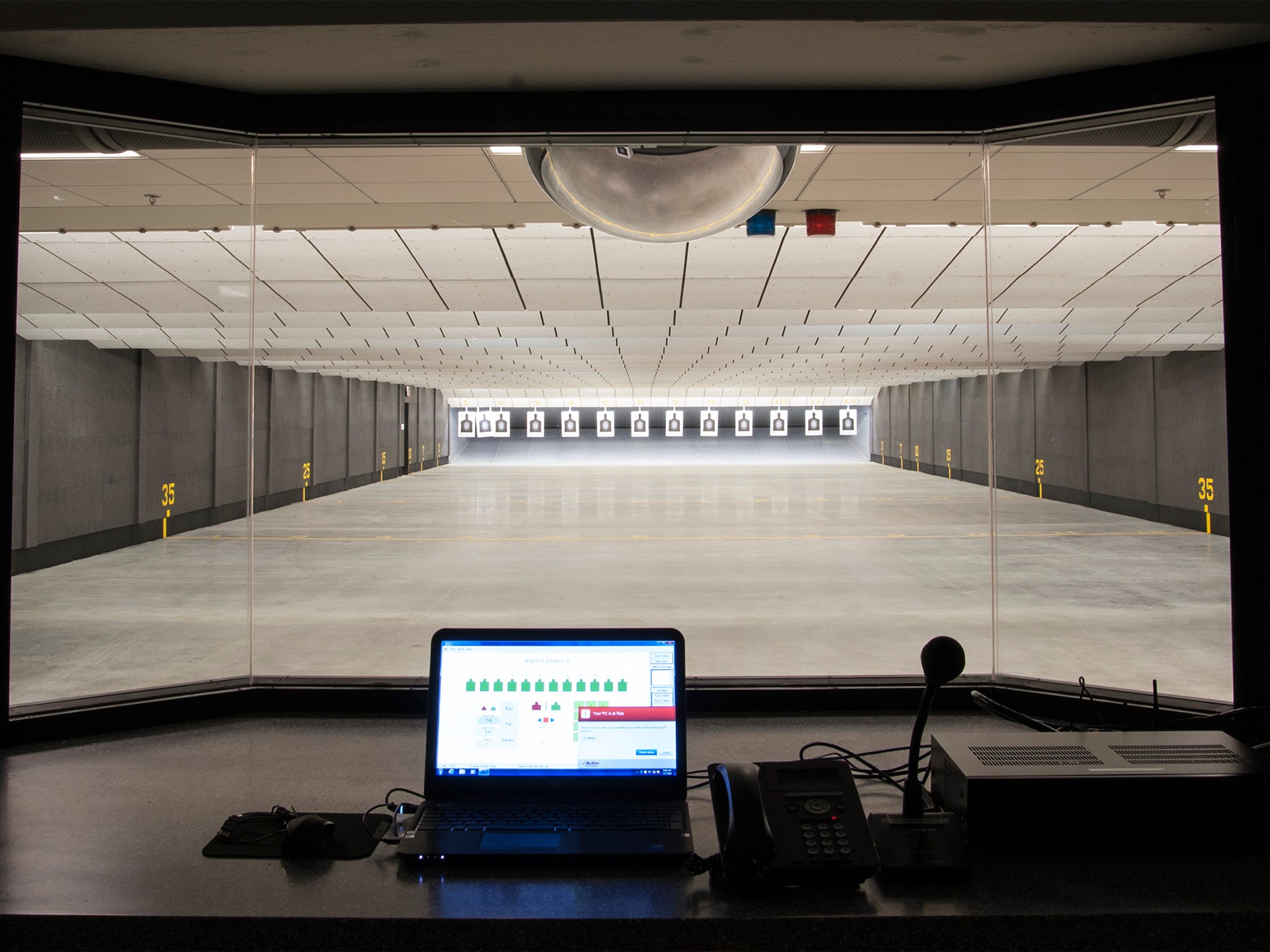Outsourced £20m training bunker will train armed police in hostage rescues
Bedford centre will allow police and military to conduct realistic anti-terror operations inside a decommissioned reservoir

A £20m underground training centre to practise hostage rescues is set to open in 2017, with its private-sector backers banking on a rising number of armed police to counter a growing terrorist threat.
The centre, for police and the military, will provide five firing ranges, training for Tasers and mock-ups of houses, hotels and airports to conduct realistic anti-terror operations inside a decommissioned reservoir in Bedford.
The centre has2m-deep walls for sound-proofing, with the longest 100m range big enough for officers to practise intercepting cars, according to the National Firearms and Tactical Training Centre.
The backers say they are in advanced talks with police forces to exploit the demand for cheaper firearms training that it says it can provide for £100 a day. Senior officers say that firing ranges are expensive to build and maintain and are looking to collaborate with the private sector to cut costs.
Forces, including Avon and Somerset, Greater Manchester and Scotland Yard, host training centres, but officials behind the new project say that more places are needed.
“Over the next ten years, there will be an increasing number of officers that require the training,” said Andrew Young, marketing director. “While the British police and military have some of the best personnel and training facilities in the world, increasing demand means that there isn’t enough capacity.”
The current threat level from international terrorism is rated as “severe”, meaning that an attack is highly likely. Only one level is higher, critical, which means that an attack is anticipated imminently.
The project is the latest private-sector entry into police firearms training. KBR – a former subsidiary of the Halliburton group which built the Guantánamo Bay detention camp – has been contracted to run live firearms training in the UK. Mr Young said there had been interest from the authorities in France and Belgium about using the centre when it opens in January 2017.
Deputy Chief Constable Simon Chesterman, in the Civil Nuclear Constabulary and national lead for Armed Policing, said: “Access to good firearms training venues is vital but sites are expensive to build and maintain. The police service is committed to achieving the best value for money. This means that we will continue to explore opportunities to collaborate and consider the use of public and private venues to deliver training.”
